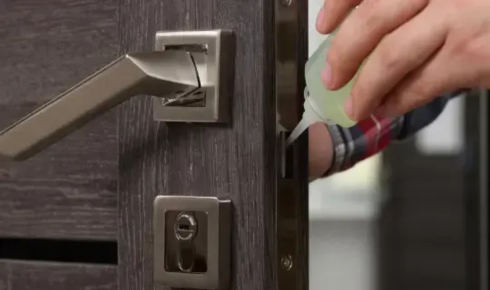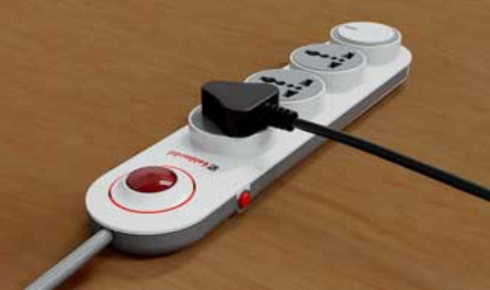Key Takeaways
- Regular maintenance and mindful key habits can prevent the most common car lockout issues.
- Recognizing early signs of lock failure or electronic malfunction allows for timely fixes.
- Professional locksmiths offer fast, safe solutions for vehicle lockouts and security concerns.
Table of Contents
- Sticking or Jammed Car Locks
- Broken or Worn Car Keys
- Remote or Key Fob Failures
- Frozen Vehicle Locks
- Ignition Cylinder Issues
- Faulty Door Actuators
- Preventive Measures
- When to Call a Car Lockout Professional
- Conclusion
Vehicle security is more than just an alarm system—it starts with the reliability of your car locks and keys. Being locked out of your vehicle is one of the most frustrating scenarios drivers face, often striking at the worst possible moment. Whether caused by worn-out keys, failed remotes, or frozen door locks, a car lockout can delay your schedule, raise safety concerns, and even leave you stranded. Fortunately, understanding the causes behind common vehicle lock issues and how to prevent them can dramatically reduce your risk. For those experiencing a sudden lockout, services like car lockout Onalaska, TX provide quick, professional support to get you back on the road without damage or delays. Many of these situations are avoidable with routine maintenance, spare key planning, and early attention to warning signs like sluggish locks or inconsistent fob performance.
Sticking or Jammed Car Locks
Older vehicles or those exposed to harsh environments often develop sticky locks. Over time, dirt, rust, and weather exposure can cause internal components to seize up. If you find your key difficult to turn in the door or trunk, applying a silicone-based lubricant can help restore smooth movement without attracting more debris. Avoid using WD-40, which tends to leave a residue. Regular cleaning, especially before winter, is key to preventing internal corrosion and jammed cylinders.
Broken or Worn Car Keys
Keys made from softer metals may wear down faster, especially with repeated use or improper storage (e.g., keeping keys in tight pockets or using them to open packages). A weakened key may eventually snap inside the lock or ignition. If you notice bending, cracks, or uneven wear, get a replacement made before it breaks. Always carry a backup key safely away from your vehicle to avoid emergencies.
Remote or Key Fob Failures
Today’s vehicles rely heavily on electronic fobs and smart keys. Access can vanish when batteries die, circuits fail, or remotes lose sync with your vehicle. Signs of an impending issue include inconsistent button response, decreased range, or complete unresponsiveness. Replacing FOB batteries regularly and keeping a manual key accessible can prevent lockouts. If reprogramming is needed, your local locksmith or dealership can help restore functionality.
Frozen Vehicle Locks
During winter, moisture in door locks can freeze, preventing key entry or rotation. Hot water might seem like a quick fix, but it often leads to further freezing or internal damage. Instead, pre-treat your car locks with silicone sprays before freezing temperatures hit. If you encounter frozen locks, use a commercial de-icer or gently warm your key to thaw the mechanism safely.
Ignition Cylinder Issues
Sometimes mistaken for battery or starter problems, ignition lock cylinders can wear out, preventing the key from turning or being inserted fully. Forcing the key can worsen the damage. Symptoms include a sticky key, the key not turning at all, or the need to jiggle the key repeatedly. If you notice these issues, seek assistance before full failure occurs. Replacing a failing ignition early is far more convenient than getting stranded.
Faulty Door Actuators
Electronic door locks rely on actuators to lock and unlock automatically. When these fail, your doors may remain locked even when using the fob or interior switch. If you hear buzzing or clicking without movement, or some doors don’t respond, the actuator may be on its way out. Fixing this issue typically requires door panel removal, making professional help the best option.
Preventive Measures
- Regular Maintenance: Clean and lubricate your car locks every few months, especially before seasonal changes.
- Key Care: Don’t overload your keychain; avoid using your keys as tools; replace them if they show signs of wear.
- Backup Access: Keep a spare key in a secure, accessible location and consider carrying a mechanical key alongside your fob.
- Battery Checks: Replace your fob battery annually or at the first sign of decreased range or responsiveness.
- Professional Evaluation: If your locks feel loose, sticky, or unresponsive, check them before they fail completely.
When to Call a Car Lockout Professional
While some car lock problems are minor and fixable with DIY methods, others call for immediate expert assistance. A car locksmith has the tools to safely unlock modern and older vehicles without damaging the lock or door frame. Call a car lockout professional if you experience:
- Keys locked inside the vehicle
- A broken key stuck in the ignition or door
- Non-responsive remotes with no manual key access
- Malfunctioning door locks or actuators
- Ignition issues are preventing the vehicle from starting
Prompt, professional intervention ensures your vehicle remains secure and operational while preventing further damage. For drivers in urgent need, trusted services like car lockout can help recover access quickly and safely.
Conclusion
Car lockouts are never convenient, but they are almost always preventable. From routine maintenance to smart key habits, a proactive approach can minimize your chances of being locked out or dealing with costly repairs. Still, when problems arise, knowing who to call and acting fast can make all the difference. Whether frozen locks, broken keys, or electronic fob failures, combining prevention with reliable locksmith services keeps your vehicle secure and accessible when it matters most.



